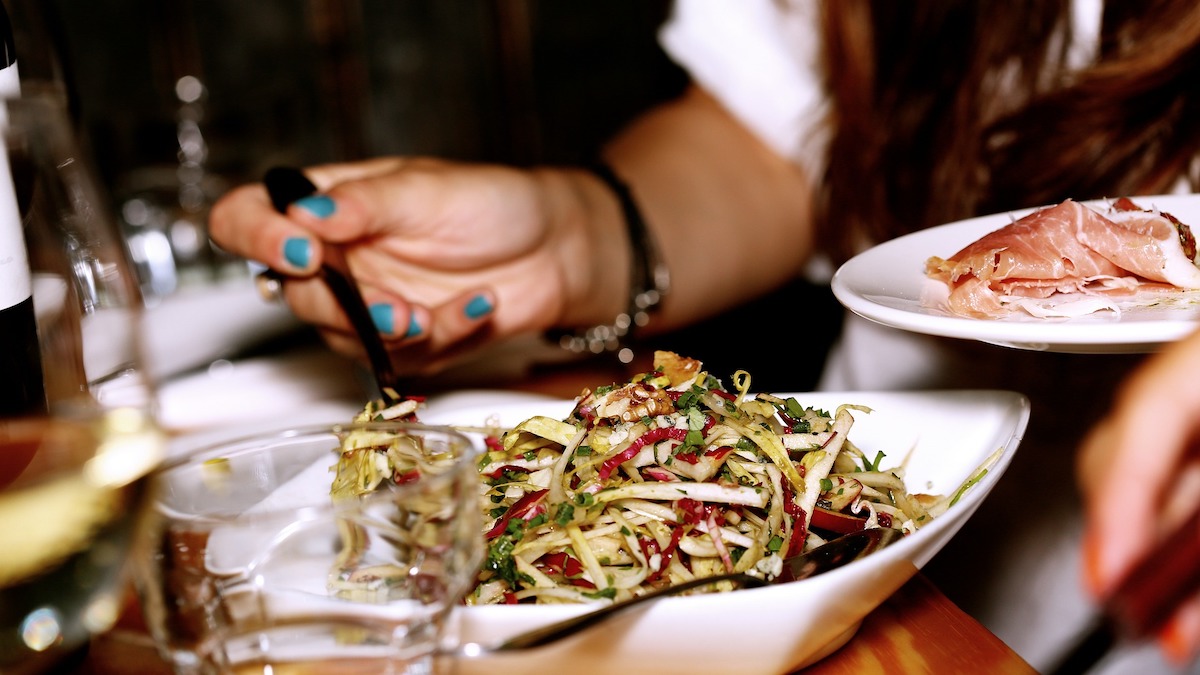If you ask ten different doctors or healthcare professionals what to eat, you’ll get ten different answers. The truth is there is no one proper diet. Everyone is different.
We are biochemically unique individuals, so there is no one-size-fits-all. What works best for your friend, spouse, or neighbor down the street may not be the best plan for you. However, some core foundational nutritional principles are fundamental to keep in mind and implement.
In our country today, we are overfed yet undernourished. We eat a lot of calories, but many of these calories have little to no nutritional value. The foods you choose to eat are the building blocks of your body. Your body is composed of cells, and about 1% or 330 billion of these cells are replaced daily. All your cells will be replaced in about three months, which means you are a brand new you four times per year. These cells are made from the materials available to them, provided by your diet. You are what you eat.
All diets work while we are on them. Have you ever been on a diet for 30, 60, or 90 days? I have, and I usually feel great when I’m on them. But when the challenge ends, I slowly revert to my old ways.
Now, my approach is a more intuitive way of eating that might not yield results as quickly but is something I can stick with forever! Yo-yo dieting is terrible for your metabolism and your overall health. And remember, the tortoise wins the race, not the hare, right? Think forever, not necessarily fast.
So these are my top 10 tips for healthy eating, in no particular order:
1: Eat real food.
2: Eat veggies, veggies, and more veggies. They are packed with nutrients, low in calories, filling, and good for you. Eat vegetables with every meal. Learn to like them.
3: Instead of counting calories, track fiber. Aim to get 25-50 grams of fiber per day. Fiber is the part of plant-based foods that pass through your digestive system w/o breaking down or being digested. It is healthy for the gut lining and food for good gut bacteria.
4: Drink lots of water. However, too much of a good thing can be dangerous, leading to life-threatening low sodium (hyponatremia). Aim for ounces per day equivalent to ½ of your body weight in pounds. For instance, if you weigh 150 lbs, your goal intake for water would be 75 ounces.
5: Stop buying low-fat. Fat is a significant source of energy. It helps absorb some vitamins and minerals and is needed to build cell membranes. Additionally, fat forms sheaths around nerves, protecting our brain and nervous system. However, not all fat is good. Add mono and polyunsaturated fats to your diet–like olive oil, avocados, nuts, fatty fish, and flax seeds.
6: FAST. The time between meals is when our gut repairs itself. If we are constantly eating, this never happens. Also, at night, our body cleans up bad cells. I recommend starting with a 12-hour fast (for example, 7 pm to 7 am) and avoiding snacking between meals. This will improve insulin sensitivity, weight loss, and better health.
7: Limit sugar and flour. With flour, the beneficial part of the whole grain has been removed. The fine powder spikes the sugar, which spikes the insulin. Frequent spikes of insulin lead to insulin resistance, one of the main drivers of many chronic diseases. I think all white powders are best to avoid–sugar, flour, excessive salt, and cocaine!
8: Limit your exposure to toxins by buying organic foods. Organic foods are worth the extra money, especially with fruits or veggies where you eat the other layer. For instance, I buy organic berries but not bananas (since the peel is thrown away anyway). The foods on the Dirty Dozen list are the best to buy organically. You can save money by buying non-organic food for the Clean Fifteen. For more information, visit EWG.org.
9: Eat before you are starving. It is so hard to make good decisions when you are starving. It’s like going to the grocery store when hungry–usually not a good idea. Learn your rhythms and eat before it’s too hard to make a decision that aligns with your goals and is good for your health.
10: PLAN. Failing to plan is planning to fail. It’s so helpful to have healthy items that are easily accessible and ready to go. Likewise, if unhealthy choices aren’t readily available, they are easier to avoid. Set yourself up for success.
Pick one of the ten principles you aren’t already mastering and implement it today.
Small, consistent actions build up over time to create tremendous results. The problem is that TIME is the secret ingredient. Don’t give up. It is working but working and not working look the same for a long time.




